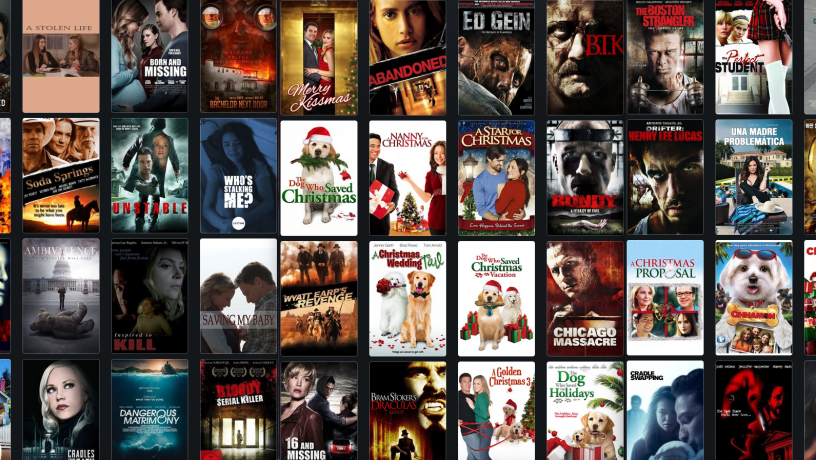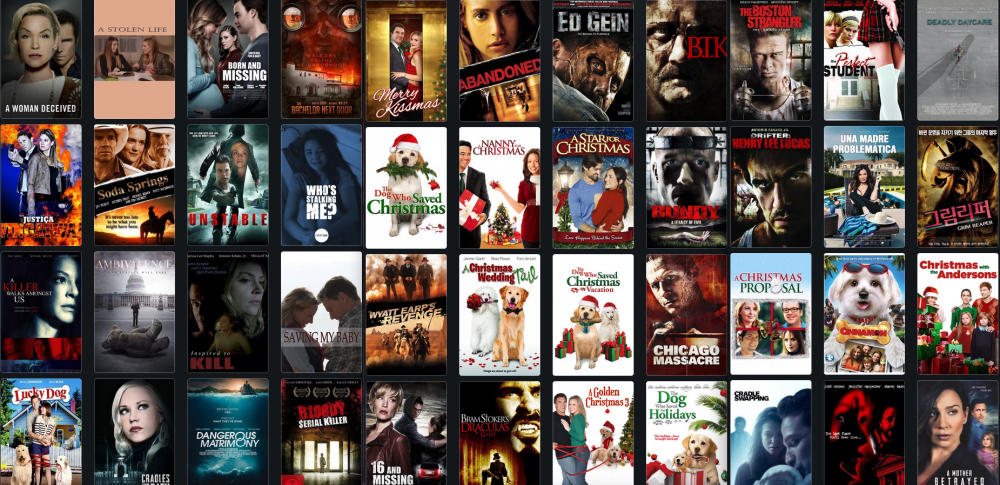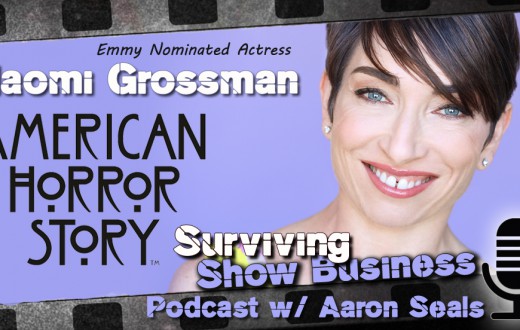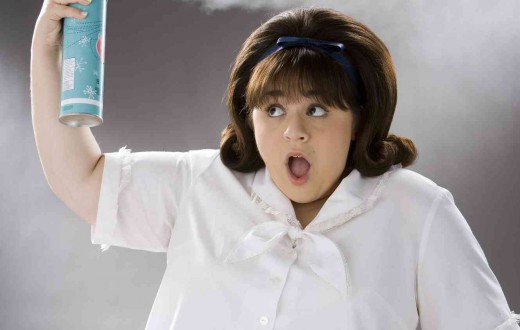Whether it’s AD-ing for Al Pacino, directing Val Kilmer, or working on low-budget Lifetime Channel movies, Michael Feifer always brings his A-game on set.
If there’s one thing you learn working with actors and other creatives in the film industry it’s that we all must carve our own paths. For every person you run into who was acting or directing their siblings in home movies from the age of six and never stopped, there are ten people who circled around their eventual destiny and came at it from another angle.
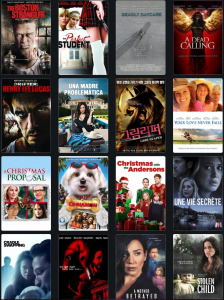 Enter director/producer/screenwriter Michael Feifer. For a guy who just wrapped production on his 59th film and is going into production on his 60th, Feifer sure took the long way to get where he was going. Despite moving to California at 4 years old and having extensive exposure to the business throughout his early life, Feifer says he was far more interested in sketching and architecture at an early age even though his father jumped in to the entertainment business with both feet.
Enter director/producer/screenwriter Michael Feifer. For a guy who just wrapped production on his 59th film and is going into production on his 60th, Feifer sure took the long way to get where he was going. Despite moving to California at 4 years old and having extensive exposure to the business throughout his early life, Feifer says he was far more interested in sketching and architecture at an early age even though his father jumped in to the entertainment business with both feet.
“My dad came up with this idea to take Carol Burnett’s show and break it up into syndicated 22-minute segments, and so he ended up working with Carol Burnett when I was a kid,” Feifer said from his Los Angeles home on one of just two days he has off between film shoots. “And after that dissolved, he started making low-budget movies when I was probably in 9th or 10th grade. Now, all that time it never dawned on me that I might be interested in making movies too. I went to elementary school with Peter Guber’s daughter, and with J.J. Abrams, and with Ed Asner’s kids, and still had no interest in making movies.
“What was wrong with me?” he adds, laughing.
Feifer’s father went on to have a solid career in low-budget films, but even living under the same roof with a producer, Feifer still didn’t see himself going into the business. However, after graduating architecture school in Boulder, Colorado, and with the summer to kill before going back for his master’s in the fall, Feifer and his brother decided to work on the low-budget film their father was then in the process of shooting, Fraternity Demon. And the rest, as they say, is history.
“I got the bug,” Feifer says with a verbal shrug that betrays zero regret.
After production wrapped on Fraternity Demon, Feifer continued to work with his dad instead of getting his master’s, helping him to “normalize” the business – in other words, to be a producer.
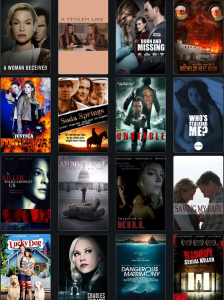 “He would send people out to go make movies, and it was a mess,” Feifer says. “Money was being spent improperly, locations were dropping out, actors weren’t showing up – whatever it might be. And I started producing all his movies, running his video label, and going with him to foreign markets to help him sell movies. And then other companies started asking me to produce, and I started AD-ing movies so I could control the pace as to what was going on, and to sort of hone my skills as director, because I thought, why can’t I do this?”
“He would send people out to go make movies, and it was a mess,” Feifer says. “Money was being spent improperly, locations were dropping out, actors weren’t showing up – whatever it might be. And I started producing all his movies, running his video label, and going with him to foreign markets to help him sell movies. And then other companies started asking me to produce, and I started AD-ing movies so I could control the pace as to what was going on, and to sort of hone my skills as director, because I thought, why can’t I do this?”
Why not indeed, as he quickly found out when he signed on to direct his first movie, 2005’s Lethal Eviction.
“Now, I know its a corny name, but what’s interesting about that film is that the actor it was originally going to star got really really sick just two days before shooting,” Feifer says. “We didn’t even have time to go to casting.”
Instead they turned to the actress who was originally scheduled to play the lead, asking for any ideas of other women who might be right for the part. She brought up a friend from New York who went to Julliard, had recently been in a stage production of The Crucible with Liam Neeson and who had just moved to L.A.
“And it was Jennifer Carpenter (Dexter, The Exorcism of Emily Rose),” Feifer says. “And she came in over the weekend, and it was just my executive producer and I, and we were just in a conference room, but it was shocking. It was one of the best auditions I’ve ever seen in my life. Just so good, so textured.”
Not only did Feifer – via a backdoor, random connection – land a lead actress who would go on to star in one of the biggest breakout shows of the 2000s for his directorial debut, he also booked Judd Neslon (The Breakfast Club) Michael Learned (The Waltons) and James Avery (Fresh Prince of Bel-Air), lending the film not only cachet but real talent as well. But while there are many freshman directors out there who might falter at such a task, for Feifer it was just another day at the office, as he had already put in the work as a producer and AD to learn the nuts and bolts about how movies are made – a concept that translates well to acting too.
“I really try to express to people to put in the time and the effort to work in your craft and learn the business,” he says. “And if you’re a director, there’s really nothing worse than walking on set and being the person who knows the least out of anybody, who really doesn’t understand the craft of directing, and who doesn’t understand how to work with actors.
“The problem with the movie business,” he adds, “is you don’t need a degree, you don’t need a certificate, you don’t need to pass a test – you can literally get a business card that says you’re a director, and now you’re a director. That can also be a great thing.”
Feifer had much more than a business card and a dream when he first donned his director’s hat, having already produced some 30 films prior, and having assistant directed on nearly a dozen – including Al Pacino’s unreleased documentary Wilde Salomé, a follow-up to Looking for Richard that performs a similar, equally fascinating in-depth vivisection of directing and acting in Oscar Wilde’s play Salomé. Feifer not only had the skills to run a set and get down to the technical specifics with his crew regarding shot angles and camera lenses, he also had the valuable people skills that come from working with professional actors at the top of their field.
“Al Pacino is the sweetest guy,” he says. “It should teach a lot of actors about humility that one of the biggest guys in the business is also one of the kindest. It was a really great experience. I’ve had my bad experiences, but I’ve worked with a lot of well-known actors who are just really great to work with. Usually it’s the ones who never really made it who are the difficult ones.”
And the ability to work with others is high up on Feifer’s list of attributes he looks for in actors. He has an acronym for the type of people he wants on his set: FCWTP. That stands for Flexible, Compromising, and With The Program.
But that’s not to say he’s a dictatorial director – quite the opposite, actually. In fact, Feifer confesses that watching actors in auditions, he often learns a great deal about his own scripts and characters he’s created – that is, from the actors who can imagine and create their own take on the material.
“An actor needs to pick a direction and take a chance.” he says. “Who cares if you get the part in this sort of generic way that you thought the casting director wanted? Even then, you probably wouldn’t get the part. What you should do is read it, and pick an angle. It might not match what the director thought, but when I’m auditioning actors, I’m actually using the actors to see my script and my dialogue done in different sorts of ways. I really get off on an actor coming in with a totally different angle than I ever expected. That’s what’s going to cause me to hire an actor, is when they come in there with something that textured and different.”
Feifer had another great piece of advice for actors just getting acclimated to working on set: don’t limit your research to learning your lines and working on your character. What’s more, he suggests you turn your natural actor’s affinity for studying the human condition to creating the relationship with your director that will be most beneficial to your acting, and consequently, the film. While we as foot soldiers in the battle of creating films often look to the director as an infallible and perfect general, according to Feifer, insecurity abounds behind the lens as well as in front of it.
“Actors have to understand too that unfortunately on a movie set there’s a lot of ego and there’s a lot of insecurity,” Feifer said. “Evaluate and really understand where your director is coming from. Do a little research. If that director hasn’t directed a movie before, they might be a little insecure about the process. So come at them at a certain angle, and make sure you’re treating them in a certain way, helping them to be comfortable while still getting what you need.
“It’s amazing how often I work with actors who know nothing about me, who don’t do any research at all,” he adds. “They’ll agree to do a film for three weeks in the trenches and they won’t actually get on IMDb.”
Circling back to auditions, Feifer says that the real challenge for the actor is to overcome the weirdness and nervousness of the audition process and find a way to really light up the room with a different take on the material.
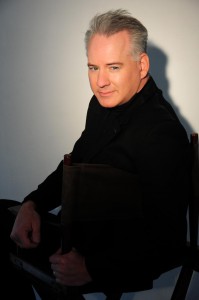 “If I’m seeing 50 other people today, I’m looking to see something in you that’s going to make me remember you. How do you be memorable? Not memorable because you were insane, or over-the-top, but because you brought something to that moment that just hit. Bring some human quality to the moment that they weren’t expecting. Something…where the director doesn’t even have to write your name down.”
“If I’m seeing 50 other people today, I’m looking to see something in you that’s going to make me remember you. How do you be memorable? Not memorable because you were insane, or over-the-top, but because you brought something to that moment that just hit. Bring some human quality to the moment that they weren’t expecting. Something…where the director doesn’t even have to write your name down.”
And there are certain emotions that are bound to have a bigger impact in the audition room than others.
“When an actor brings the tears, I love it. Man, there’s nothing better,” Feifer says. “If you can bring that emotion to an audition, it really rocks everyone in the room. It really shows them that you’re really able to get to that place and that you care, and that you can focus on your performance.”
But, dear God, actors, when it comes to accessing your emotional tool chest in an audition, use some common sense too. Feifer tells a story about auditioning actors for horror films when he was still just producing, and having the director tell the actresses to “act like you’re about to be killed.”
“I wish I still had that tape – actresses just looking and screaming and running and hiding behind things. It was just insane,” he says. “You’re in an office and there’s other offices around and these actresses are just screaming their lungs out. I remember this one time there was a file cabinet in the space where we were filming, and this girl grabbed the file cabinet with all her strength and pulled it around and just buried herself behind it…that is a little too much.”
Another audition key that actors can take to heart is to understand that you’re being evaluated the entire time you’re at the casting. From the moment you walk in and sign in at the front desk to after you’ve done your read and you’re heading out the door. According to Feifer, you never know who might be watching if you act unapproachable or snotty while you’re waiting to step in front of the camera.
“I think a big mistake is to not be personable,” he says. “To walk in and not be pleasant and thank everybody, and make a little small talk if there’s time. A lot of times I like to watch the actors between the performances. I like to see what kind of person they are. You want to have somebody that you feel you can have a relationship with that’s what I call a ’12-hour person,’ who are going to be the same person in the morning as they are after a 12-hour day of work when you have one more scene to shoot.”
When all is said and done, for Feifer, the most important thing for aspiring actors to do is to learn the craft of acting. Get on set any way you can, whether it be in student films or in thankless tiny roles, and learn how movies are made. And, Feifer points out, don’t forget that you can create your own set in this day and age, since everyone is walking around with a 4k camera in their pocket.
“There’s no reason why you can’t write a scene and have your friend direct it,” he says, “and shoot the scene using film language. The same film language we use in indie films is the same film language we use in studio films: it’s over-the-shoulder shots, POV, tracking shots, medium shots, low-angle, high-angle – whatever. Its the same film language. So there’s no reason an actor can’t be learning the craft of acting on film even in their apartment.”
Ultimately though, for Feifer it was the act of declaring himself a director that finally made people perceive him as one – and that perception is what finally transformed him into the man who just started filming his 60th movie this week. He suggests we as actors have the same opportunity to perform this kind of alchemy.
And while Feifer won’t promise the exact same results he got, he says self-perception leads to how the world perceives you. And how we are perceived makes a huge difference in what doors open up for us.
“I think the first thing you do is you start saying, ‘I am an actor.’ I didn’t start directing movies until I said, ‘I’m a director.’ It’s a weird thing but it’s going to go a long way. If you tell people you’re an actor and you say it confidently, people are going to look at you and say, ‘Okay, I know this person. I know who this person is,’” he says.
“’This person’s an actor.’”

